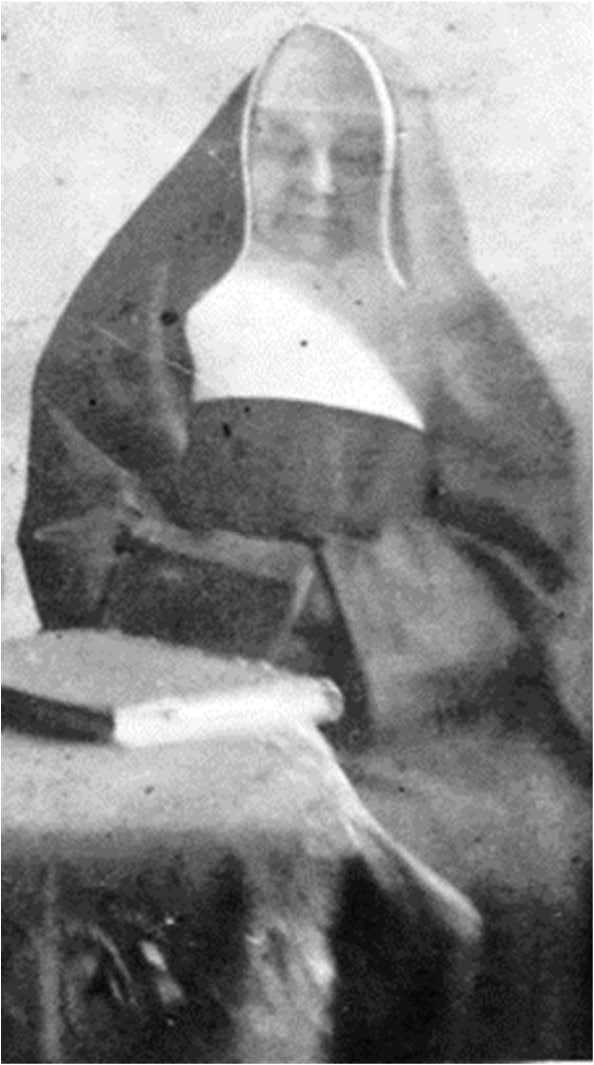In the last column we left our intrepid band of displaced sisters journeying from the familiar to a world that would be new and different in almost every way. On September 1, 1875, they boarded the “August Andre” in the port of Antwerp, and embarked on the seventeen-day journey to New York City where they were welcomed by the Aachen Franciscan Sisters (Franciscan Sisters of the Poor).
Mother Gonzaga Brexel relates that after a brief stay in Brooklyn, we left for Buffalo where our sisters were already working in two parish schools, St. Michael’s and St. Ann’s. For two weeks we thoroughly enjoyed the true sisterly love of our dear (sisters). We used a good portion of the time learning the English language for we were now surrounded by English speaking individuals and most probably would be for the rest of our lives.
By early October they were off again, this time to Columbus. Our final destination was New Lexington to which God was so providentially leading us, not to stay just for a few days, but for a long, long time, indeed, and to a place that proved to be a spot that we “loved at first sight.” Construction on the new institution (to be known as St. Eugenie’s Academy) had begun in 1871 and while the building slowly went on, no one in Germany had even guessed that the sisters in Konitz would one day occupy it.
The day after the “Konitz-Sisters” arrived in Columbus, Sister Gonzaga, who had been appointed superior and directress of the new academy, left to visit the site of her soon-to-be home. What she discovered was not what she had anticipated. Instead of a building ready for occupancy, she was confronted with a partially completed edifice high on a hill about a mile from the village of New Lexington. Nothing about the situation was suitable. The house, in every respect was a “botch” and, moreover, there were several lawsuits concerning the debts which had been incurred during the construction. When Mother Aloysia had agreed to take on the new academy, it had also been agreed that the sisters would likewise assume the debts that necessarily come with building such an academy. These debts had already mounted to about $7000. What should be done? The whole matter would be given up—the agreement cancelled!
Then a zealous priest took the matter in hand and vetoed this decision. His name, Reverend Father Eis, and after a consultation with Bishop Rosecrans, it was decided that the (sisters destined for New Lexington) should stay at the orphanage in Columbus during the winter. . . .Scarcely had a month passed after we had been so lovingly welcomed at the orphanage where we ate the bread of the poor with the poor, when we heard the surprising news that five more sisters from Germany for the academy had landed in New York. As joyful as this news was on the one side, it was just as depressing on the other. Where were the poor, dear sisters to stay during the approaching winter? At the orphanage every corner of the building was filled three times its capacity. Almighty God, who never forsakes his own who zealously seek him, also helped in this embarrassing situation. Our dear sisters at St. Michael’s, Buffalo, New York, took in the exiles and lovingly and generously gave them hospitality throughout the long, cold winter. During their stay they zealously studied the English language, without which knowledge, they would have been unable to do the work for which they had been sent.
During the winter that seemed to pass so slowly, Reverend Father Eis went back and forth to New Lexington to direct and control the final stages of completely finishing and furnishing the new building. At the same time the sisters met and contracted with a German farmer, Mr. Wieser, who agreed to take on the management of the run-down farm. He and his family would live, rent-free, in the farmhouse and he would be paid $400 annually. He began work in December 1875 and donated his first month’s work free! Things seemed to be settling into place. Surely, come spring, the sisters would be able to move into their new home in the Perry County Hills! -TO BE CONTINUED

